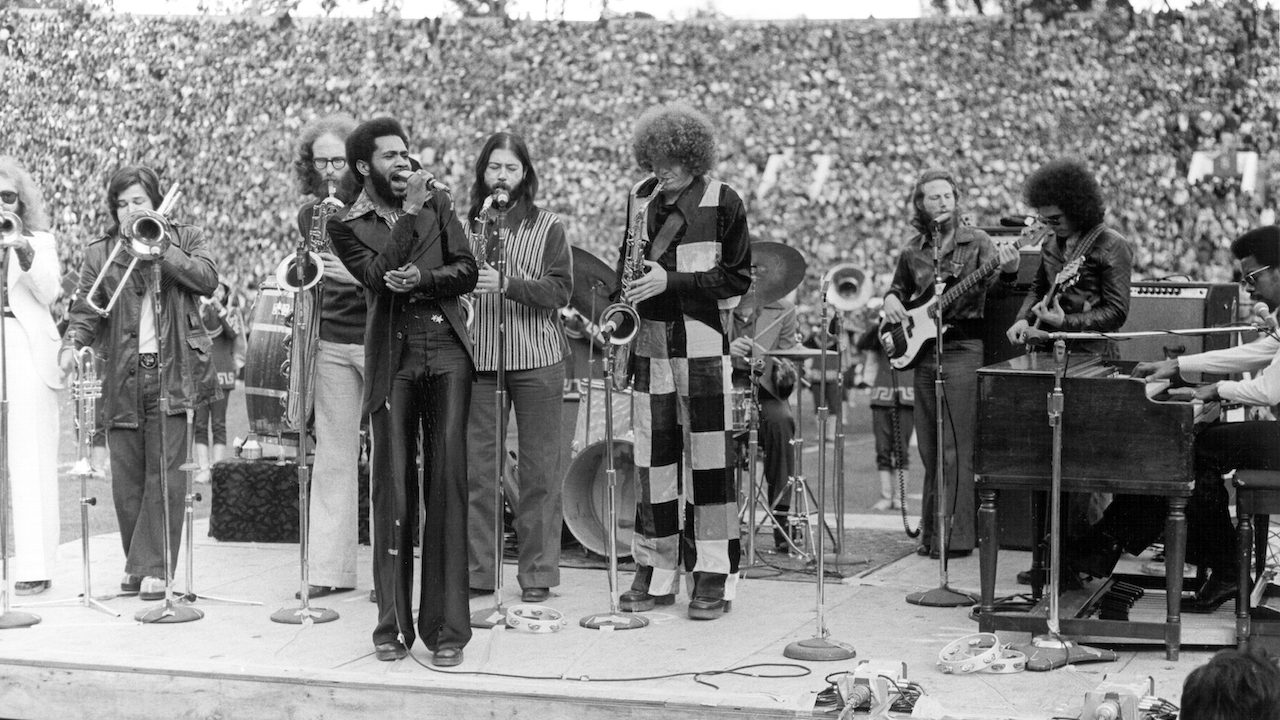“Guys would come up and tell me, ‘I can play such-and-such a Tower of Power song note-for-note.’ But who cares?” The magic of Rocco Prestia’s bassline on Tower of Power’s Only So Much Oil in the Ground
How to play Rocco Prestia’s classic Tower of Power bassline
![Tower of Power [L-R: Greg Adams (trumpet), Mic Gillette (trumpet), Stephen Kupka/Doc/The Doctor (sax), Emilio Castillo (sax), David Bartlett (drums), Lenny Picket (sax), Francis Prestia/Rocco (bass), Lenny Williams (vocals), Bruce Conte (guitar), Chester Thompson (keyboards)] performs on Soul Train episode 126, aired 2/1/1975](https://cdn.mos.cms.futurecdn.net/NnjoDxnJtQojDr6A7hH4XJ.jpg)
All the latest guitar news, interviews, lessons, reviews, deals and more, direct to your inbox!
You are now subscribed
Your newsletter sign-up was successful
“Steal and incorporate,” the late Rocco Prestia stressed in the November 2008 issue of Bass Player, noting that copping another bass player's approach is an exercise best used for refining your own style. “Guys sometimes come up and tell me, ‘I can play such-and-such a Tower Of Power song note for note.’ But who cares? If you can't play it like you, it ain't worth nothing.”
From his founding perch as Tower Of Power's propulsive bassist, Francis ‘Rocco’ Prestia helped innovate fingerstyle funk and redefine the concept of groove on such pocket anthems as What Is Hip? Soul Vaccination, and Squib Cakes.
Prestia dug in hard with his right-hand fingertips, with a fingerboard approach that involved fretting notes with his first two fingers, laying his left ring and pinkie finger across the strings for muting, and frequently shifting positions.
The clipped staccato 16th-notes, ghost-notes, and the rhythmically busy, forward leaning approach to funk perfectly suited Dave Garibaldi's energetic drumming and the band's tight horn arrangements.
Prestia actually started on a different rhythm instrument – guitar – at age 10. At 14, soon after auditioning for classmate (and T.O.P. saxophonist/bandleader) Emilio Castillo's band, he switched to bass guitar.
The group tripped on soul music, added horns, and were weeks away from recording its debut album when Garibaldi took over the drum chair. In the May 2006 issue of Bass Player, Rocco recalled that the connection between the two was instant and incendiary.
“Dave was a really busy player, and I had more of a laid-back, Memphis approach; we met in the middle and refined our concept from there. He certainly opened me up rhythmically, and I quickly realized that more staccato percussive playing locked better with his drums.”
All the latest guitar news, interviews, lessons, reviews, deals and more, direct to your inbox!
A master of 16th-notes, with an innate ability to lay them seamlessly into a groove, Prestia made his basslines sound effortless and relaxed.
For the rest of us, a good place to jump into his style is the 1975 Tower of Power standard Only So Much Oil in the Ground. The track, which was a statement on the energy crisis of the time, is from Urban Renewal, Tower's sixth and final studio album in its run of classic '70s records for Warner Bros.
Prestia's approach reveals a few key techniques. The first are muting and ghost-notes. Prestia uses a combination of plucking-hand rest-strokes with his index and middle fingers with fretting-hand muting.
Second, while he occasionally plays an almost steady stream of 16th-notes, like on What Is Hip?, most of his parts feature the “Rocco gallop.” On a per-beat basis, this consists of either an eighth-note and two 16ths, or two 16ths and an eighth. That concept, which fuels Oil, is essential because it creates the rhythmic space in his lines that give them their unique feel.
The song consists of alternating A and B sections. Prestia subtly varies the basic groove throughout (and also changed it over the years). In the first bar, he plays the gallop figure on beat one, inverts it on two, and does the same on the next two beats.
“Focus on keeping the eighth and 16ths even throughout,” Prestia told Bass Player. “As opposed to accenting certain notes. This is a driving Oakland funk groove, so stay on top of the beat and push it along with staccato notes.”
The first and second endings reveal two favorite Prestia moves: going down to a major 3rd below the root, and using octaves via a root-5th-octave shape. In the third ending he employs octaves to move up to the next chord change. Also note the Db in the last measure, a big hit that leads to the B section.

In the B section, which also includes a four-bar turnaround, Rocco takes a longer breath on the first two beats before returning to his gallop.
Chris Jisi was Contributing Editor, Senior Contributing Editor, and Editor In Chief on Bass Player 1989-2018. He is the author of Brave New Bass, a compilation of interviews with bass players like Marcus Miller, Flea, Will Lee, Tony Levin, Jeff Berlin, Les Claypool and more, and The Fretless Bass, with insight from over 25 masters including Tony Levin, Marcus Miller, Gary Willis, Richard Bona, Jimmy Haslip, and Percy Jones.

